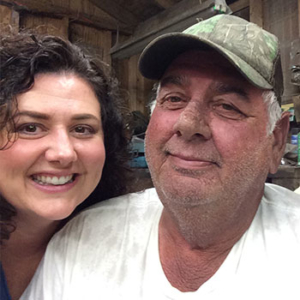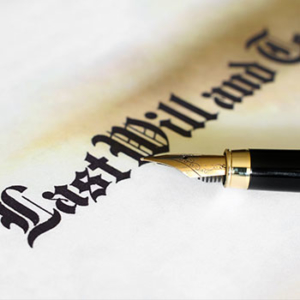 None of us gets out of here alive. That’s what my dad told me when I was sad over losing a loved one. That phrase would stop me in my tracks for its stark nature, yet plain truth.
None of us gets out of here alive. That’s what my dad told me when I was sad over losing a loved one. That phrase would stop me in my tracks for its stark nature, yet plain truth.
I’ve repeated that phrase in my head over the past three months following my dad’s death. I’ve hoped the bluntness of that saying would toughen me up, dry the tears and bring some sense of comfort. It’s been a miserable failure.
Instead, I’ve found comfort in focusing on the necessary tasks associated with working through this next chapter in our lives. I appreciate the plans that my family had in place. It has made a difficult situation a bit easier to navigate. Following are some estate planning elements that you might consider for yourself and your family.
Have a Trusted Financial Advisor
Helping my family address the retirement funds my dad left behind felt like meaningful work when I felt helpless in so many other areas. Accounts were closed, and funds transferred. New accounts were created, and funds reinvested. New beneficiaries were named. Updating beneficiary information on bank accounts, retirement accounts, and life insurance policies is essential for ensuring your wishes for your money are honored.
A trusted financial advisor gives loved ones a professional to consult when seeking ways to help ensure those funds stay on track according to their wishes.
.
 Where There’s a Will, There’s a Way
Where There’s a Will, There’s a Way
If you have personal or real property of any surmountable value or have minor children, get a will or a trust, says Clifford Rhoades, a Sebring estate planning attorney. Talk to an attorney for guidance on which legal approach will best address your needs.
Doing so is a tremendous service to your surviving family members because these legal documents get your wishes in writing. They also enable you to name a guardian for minor children and even pets, which have become like family members for many of us.
 Establish a Plan for Gifting Personal Property and Sentimental Gifts
Establish a Plan for Gifting Personal Property and Sentimental Gifts
Rhoades says that if you have a signed, written memorandum for disposing of tangible personal property, it’s enforceable under Florida law. The document can be handwritten and need not be notarized.
Power of Attorney
A durable power of attorney designates someone to act on your behalf if you cannot do so yourself and prevents the need for a court to step in and potentially make decisions different from what you wanted. Someone who has durable power of attorney can make financial transactions and legal decisions for you.
A healthcare power of attorney enables someone to make medical decisions for you if you become incapacitated. You might also consider a living will to address end of life medical decisions.
Review Property Deeds and Titles
Gather proof of ownership documents to property, vehicles, boats, etc. and verify that information regarding the listed owner remains accurate.
Funeral Planning
End-of-life wishes regarding funeral planning can be part of your will. Another option is to pre-plan your funeral with a funeral home and share those plans with a loved one.
Review your Will/Trust
Have an attorney review your will or trust agreement every several years, or when there is a significant change in your family or financial status, such as losing a spouse, coming into a substantial sum of money, or having a child who becomes permanently disabled. Revisiting these periodic personal and financial housekeeping items will ensure your wishes remain accurately reflected in legal documents.
If you are in need of a trusted financial advisor to help with financial planning, please contact us today.
November 2021
Clifford Rhoades is not affiliated with LPL or Allen & Co.
Content provided is for general information only and not intended to be a substitute for individualized legal advice. Please consult your legal advisor regarding your specific situation.

 Where There’s a Will, There’s a Way
Where There’s a Will, There’s a Way Establish a Plan for Gifting Personal Property and Sentimental Gifts
Establish a Plan for Gifting Personal Property and Sentimental Gifts


